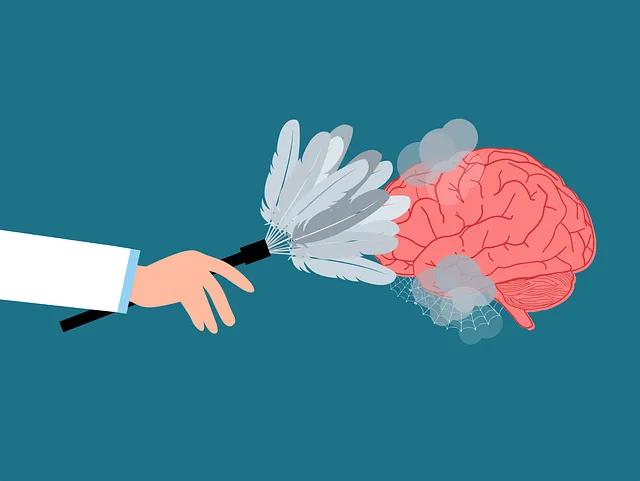Longmont Kaiser Permanente's psychiatry reviews emphasize cultural sensitivity as a cornerstone of effective mental healthcare. This involves understanding diverse belief systems, values, and communication styles to build trust with patients from various backgrounds. By integrating holistic practices like mindfulness meditation and self-care routines, culturally sensitive care promotes personalized well-being tailored to individual cultures. Challenges include navigating diverse language needs and cultural expressions of mental health concerns, which can be addressed through specialized training for healthcare providers. Comprehensive training, active listening, and evidence-based techniques enhance patient outcomes, foster trust, and improve clinical results in the context of Longmont Kaiser Permanente psychiatry reviews.
“Cultural sensitivity is a cornerstone of effective mental healthcare, yet providing culturally competent care remains a complex challenge. This article explores this vital aspect within the context of Longmont Kaiser Permanente Psychiatry’s practices and patient outcomes. We delve into the understanding of cultural sensitivity, analyzing barriers faced in delivering tailored care. Best practices are highlighted to enhance clinical settings’ cultural competence. Additionally, we examine the profound impact of this approach on patient satisfaction and community engagement, drawing insights from the unique perspective of Longmont Kaiser Permanente psychiatry reviews.”
- Understanding Cultural Sensitivity in Mental Healthcare
- Challenges and Barriers in Providing Culturally Competent Care at Longmont Kaiser Permanente Psychiatry
- Best Practices for Enhancing Cultural Sensitivity in Clinical Settings
- The Impact of Cultural Competence on Patient Outcomes and Community Engagement
Understanding Cultural Sensitivity in Mental Healthcare

Cultural sensitivity is a cornerstone in mental healthcare practice, reflecting an understanding and appreciation of diverse belief systems, values, and behaviors across various cultural groups. This aspect is crucial in building trust between patients from different backgrounds and healthcare providers, fostering effective communication, and delivering personalized care that aligns with individual cultural contexts. At Longmont Kaiser Permanente, psychiatry reviews highlight the importance of this sensitivity, ensuring that mental health services are accessible and tailored to meet the unique needs of every patient.
By integrating positive thinking and encouraging self-care routine development for better mental health, culturally sensitive practices promote holistic well-being. This involves learning about cultural nuances, such as preferred communication styles, traditional healing practices, and community support systems, which can significantly impact a patient’s journey towards mental wellness. The focus on these aspects not only enhances the quality of care but also fosters a more inclusive environment where diverse patients feel respected and understood.
Challenges and Barriers in Providing Culturally Competent Care at Longmont Kaiser Permanente Psychiatry

Providing culturally competent care at Longmont Kaiser Permanente Psychiatry presents unique challenges and barriers. One significant obstacle is the diverse nature of the patient population, reflecting various cultural backgrounds, beliefs, and language needs. This diversity demands that healthcare providers be adept at navigating different cultural contexts, understanding subtle nuances in communication styles, and respecting varied expressions of mental health concerns.
Longmont Kaiser Permanente Psychiatry reviews often highlight the importance of training and education in trauma support services to address these challenges effectively. The need for culturally sensitive practices goes beyond language translation; it involves fostering an environment where patients feel safe to express their experiences, fears, and hopes without fear of judgment or misinterpretation. Integrating burnout prevention strategies for healthcare providers is also crucial, as cultural sensitivity requires sustained effort and can contribute to provider stress and fatigue if not adequately supported.
Best Practices for Enhancing Cultural Sensitivity in Clinical Settings

In clinical settings like Longmont Kaiser Permanente psychiatry reviews, enhancing cultural sensitivity is paramount to delivering effective mental healthcare. Best practices begin with thorough training for healthcare providers, ensuring they understand and appreciate the diverse cultural backgrounds of their patients. This includes learning about different cultural beliefs, values, and communication styles that may influence how a patient expresses their mental health concerns or responds to treatment. Incorporating techniques like active listening and open-ended questions allows providers to create a safe, non-judgmental space for patients to share their experiences.
Additionally, integrating practices such as Mindfulness Meditation and promoting Confidence Boosting techniques can be beneficial. These approaches respect cultural diversity while offering evidence-based strategies for managing stress, anxiety, and improving overall well-being. Encouraging open dialogue about cultural preferences and incorporating relevant therapeutic tools not only enhances patient care but also fosters trust between healthcare providers and a diverse range of patients, ensuring Anxiety Relief accessible to all.
The Impact of Cultural Competence on Patient Outcomes and Community Engagement

Cultural sensitivity in mental healthcare is no longer a nice-to-have, but an absolute necessity. It significantly impacts patient outcomes and community engagement, especially in diverse regions like Longmont where Kaiser Permanente psychiatry services are highly regarded. When mental health professionals integrate cultural competence into their practice, they create a safe and understanding environment for patients from various ethnic, racial, and social backgrounds. This fosters trust and encourages open communication, leading to improved treatment adherence and better clinical outcomes.
In this context, techniques such as emotional regulation through mindfulness meditation and mood management strategies become more effective when tailored to individual cultural contexts. Studies have shown that culturally responsive care can enhance the therapeutic alliance, increase patient satisfaction, and promote positive health outcomes. For instance, Longmont Kaiser Permanente psychiatry reviews consistently highlight the benefits of a diverse and inclusive approach, where healthcare providers acknowledge and respect patients’ cultural beliefs and practices, ultimately leading to more successful treatment plans.
Cultural sensitivity is an essential aspect of mental healthcare, as it significantly impacts patient outcomes and community engagement. As evidenced by Longmont Kaiser Permanente psychiatry reviews, addressing challenges and barriers to culturally competent care is crucial for improving access and quality. Best practices, such as training staff, incorporating diverse perspectives in treatment plans, and promoting inclusive environments, can enhance cultural sensitivity. By embracing these strategies, mental healthcare providers can better serve a diverse range of patients, ensuring that cultural competence becomes an integral part of their clinical practice.






